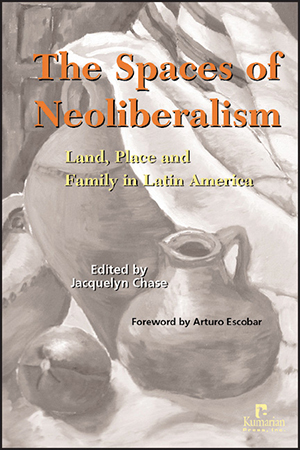
- 2002/210 pages
- A Kumarian Press Book
The Spaces of Neoliberalism:
Land, Place, and Family in Latin America
Hardcover: $30.00
ISBN: 978-1-56549-145-8
In this exploration of people's responses to neoliberal market reforms in Latin America, the authors reveal the ways that local communities negotiate with market power and state policy in their daily lives. The focus of the book is threefold: the politics of land and land reform, the family as a space of negotiation between men and women in their new roles in labor market participation, and people living on the margins of the neoliberal project.







